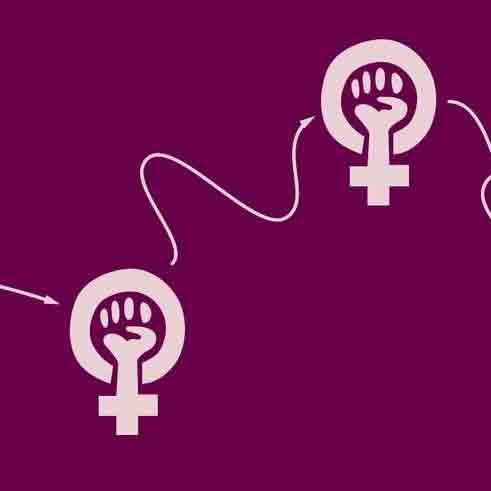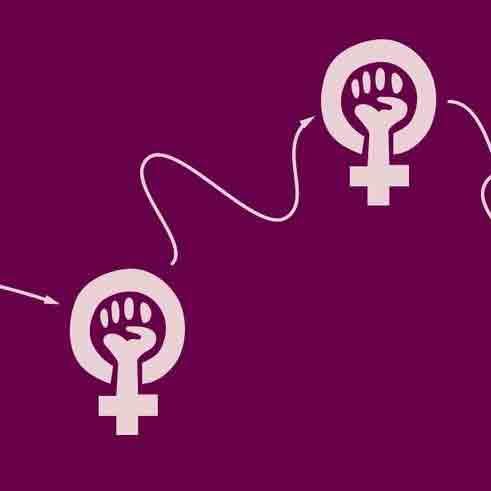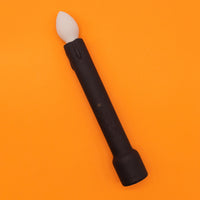I waited until well into my 21st year to have sex. I now realize virginity is merely a social construct –enforced by all, required by none– but before I “lost it,” my virginal status felt so limiting. I was choosing to wait not because of religion or fear of sex, I simply hadn’t met anyone who intrigued me enough to get into my pants. I always said there was no way I could have sex with someone that I couldn’t also have an existential conversation with (wow what a pretentious millennial I am). And honestly, sex has never been a priority for me.
However, I often felt like I was weird or wrong for my abstinence. Sex seems to be on the mind all the time for everyone I met and there is a stigma attached to virginity past a certain age. This idea is perpetuated by one’s peers and is commonplace in media. According to Aja Renee Corliss who completed a study at Bard University entitled, I’d Rather Be a Slut: An Analysis of Stigmatized Virginity in Contemporary Sexual Culture, “many of my participants as they discussed current and past feelings of shame, guilt, frustration, confusion, and anxiety regarding virginity; the common thread between all of these emotions being stigmatization. The women in my study who were heavily impacted by stigmatized virginity expressed a strong desire to lose their virginity for the sake of losing it.”
Many people determine they are too old to be a virgin based on the median age of virginity loss in the U.S., which usually hovers around 15-17. The media, too, perpetuates the stigma. Films like The 40-Year-Old Virgin are centered around the embarrassment associated with adult virginity and the main objective as “losing it.” It’s even engrained into certain aspects of our society. For example, The women’s health book Our Bodies, Ourselves points out that “federally funded purity balls… and abstinence-only programs that compare girls’ bodies to wrapped lollipops that become unwanted when used,” perpetuate this stereotype. Thus, those who wish to wait feel as though this is a wrong or abnormal choice.
While it was my choice to wait, I often found that the boys I hung around didn’t want me because they didn’t want to “ruin” me. They refused to tarnish me like I was something pure: a dainty object that shouldn’t be debased or defaced, without considering my wants and needs. This made it feel as though I had no sexual draw. Being a “virgin” was making me unsexy; and the consequent lack of sex appeal was keeping me a virgin. I was uncomfortable with this unadulterated speculation of me, and was uncomfortable with the idea that once I did finally do the deed, as a woman, I could be seen as sullied.
This liminal state of needing experience to gain experience feels impossible to overcome, and at the time I felt like the only person in the world with these thoughts and feelings. But of course there are many late bloomers out there who keep quiet about it or outwardly lie for fear of judgement. One friend of mine had sex for the first time while their partner was completely unaware it was her first time. She was embarrassed to admit it; afraid that he would change his mind or think differently of her for it. Another friend maintained for years a story that she had sex in high school when, in fact, she waited until her twenties.
I waited to have sex for various reasons, but the main one was that I wanted to be comfortable and confident in myself and my body before I shared it intimately with someone else. I wasn’t sure if being wholly comfortable and confident would ever be possible, but I wanted to be at least near that coveted self-acceptance. By the time I “lost my virginity” to a tall stranger with two names and a cool smile, I was ready. Or - I felt truly ready.
However, due to those societal pressure previously mentioned, I was also concerned with getting it over with. I felt pressure from my peers and society at large to just do it already. What was I waiting for anymore? I was ready enough, so this guy would do the job nicely. When swapping stories with my fellow Late Bloomers, we found that when the first time finally came, we didn’t want the frills and the fuss of foreplay. We wanted to do it simply to do it; to get it done and then it would be over and we’d be changed women. We were no longer concerned with enjoying or savoring this “sacred” moment, this moment we all so feared and revered.
While sex is becoming part of the conversation more and more, I also wish we talked more about not having sex in all its forms (abstinence, celibacy, etc). According to The Atlantic, millennials are actually having less sex than previous generations. “People now in their early 20s are two and a half times as likely to be abstinent as Gen Xers were at that age; 15 percent report having had no sex since they reached adulthood.” Sex can be an important, amazing part of your overall wellness, but so can abstinence. Notice how both choices carry such stigma? My wish is that we could remove shame from sex (or lack thereof) altogether. The best way to do this is to continue to keep the topic of sex in the conversation.
In all honesty, sex is whatever to me. Now that I’ve done it (and do it on the reg) it’s just a fact of life, another thing we do as creatures on this earth in order to enjoy life a little more, connect with each other a little more deeply, and procreate.
I’m glad I waited until I did. I feel liberated now that I know it’s a personal choice. As we get older or more experienced, we realize that individual experiences are just that: individual, and it’s not up to anyone else to validate it. But validation is nice sometimes, so here is me, validating you, whatever your sexual situation may be. Celibate or slutty and all that falls between; it’s alright, it’s all right.




































